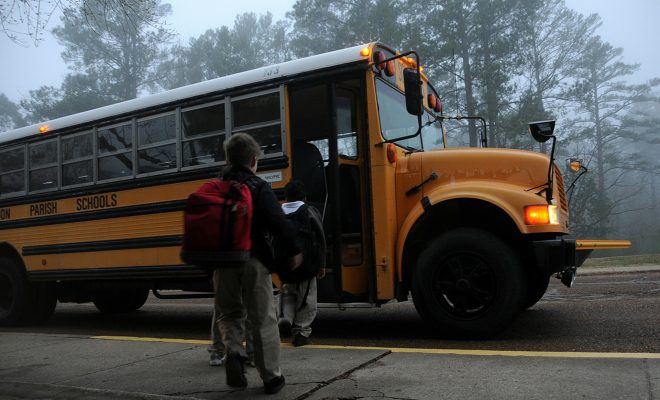Students and Free Speech: What is a School’s Responsibility?

By Matthew Lynch
Apart from the Fourth Amendment, the most important amendment pertaining to student rights is the first one. The Free Speech Clause prohibits any new law that might curb students’ freedom of speech. While the Bill of Rights have been around for quite some time, the first high-profile case involving students’ rights when it comes to free speech erupted in 1969 in the landmark Tinker v. Des Moines Independent School District case.
It involved the sensitive issue of the conflict in Vietnam. Certain students decided to put forth their objections to the war by wearing black armbands. This apparently was not received well by school authorities, and they decided to take the strict action of suspending any student who wore a black armband. The case made it to the Supreme Court and the school district was ruled against. It was a groundbreaking ruling, and the school’s stand was criticized outright.
The Court did make some concessions when it comes to what schools can and cannot allow when it comes to free speech, citing that the right to free speech could be exercised, as long as it did not disrupt the educational process in any way. Any protest or activity that interfered with normal school activities, or disrupted the peace of the school, even in the slightest manner, can be curbed lawfully.
Since that ruling, there have been other cases to hit the courts where students claimed infringement on their right to free speech in school settings. In the 1988 Hazelwood School District v. Kuhlemier case for instance, the court ruled that school administrators have every right to control and check the content published in school sponsored newspapers and magazines. The justification given was that these form a part of the curriculum and everything that could possibly influence students deserves to be scrutinized by school authorities.
The case involved a newspaper published by the journalism class at Missouri’s Hazelwood High School. The articles published discussed issues such as divorce and pregnancy; content school authorities determined was inappropriate for high school students. Authorities also feared that the fictitious names used in the articles were not enough to guard the privacy of the students whose opinions were published, and lives discussed in the newspaper. However, the students who were involved thought differently, and believed that the discussion of such topics was appropriate for students of their age. The students did not win this particular free speech fight.
So how should schools proceed when it comes to free speech rights?
While the First Amendment without a doubt endows students with freedom of speech, this does not mean that they can behave in any manner they please. It is very much within the jurisdiction of the school authorities to prevent or prohibit students from indulging in certain activities that may potentially pose a threat to a school environment conducive to learning.
Take the Tinker case. The school was denied the right to prevent students from wearing black armbands as a mark of their protest, but at the same time, they were free to suspend or take suitable punitive action against students who acted in a manner that disturbed the positive learning atmosphere. If a student was caught indulging in activities such as igniting political commotion or voicing his or her opinions in a manner that disrupted teaching and learning, he or she could justly be suspended by the school and the law made every provision for that to occur.
Similar decisions were made in the case of the Bethel School Dist. No. 403 v. Fraser in 1986, and the Jones v. State case in 2002. The former dealt with the court upholding the suspension of a student who delivered a nominating speech that involved comments of a sexual nature about a fellow student. Similarly, in the latter case, the court took the clear stance that students’ use of fighting words and threats was prohibited in schools. The category included racial epithets, lewd and offensive speech, immature conduct or true threats that could possibly lead to harming another person.
Exercising free speech is not just limited to student behavior. It in fact extends to the realms of student newspapers, plays and literature. While students do enjoy their due rights, teachers have some control. The following falls within the school’s authority when it comes to curbing freedom of expression that may be disruptive to the learning environment:
- Teachers or school authorities are required to collect concrete proof against students indulging in indecent speech, potential disruption or other unacceptable activities before taking action against them.
- Students must be provided with due process when any sort of punishment is involved.
- The banning of indecent, inappropriate and unacceptable material is acceptable by the school in cases where it contradicts the mission of the school.
- School authorities have the final word on deciding the time and place of the distribution of certain materials.
- The school newspaper must be run subject to legally defensible guidelines.
- The nature of the school newspaper must be decided beforehand. If it is decided to be an open forum rather than a curriculum-based letter, the students ought to be provided with due rights to express their opinions.
- A well-established procedure for reviewing newspaper submissions ought to exist to make the process smoother.
In the end, schools must decide what parts of free speech are inalienable rights of the American K-12 experience, and which things are detrimental to the learning experience for all. It’s a fine line but one that is a privilege to even deal with in our democracy.
What “free speech” actions do you feel are inappropriate for K-12 students?




